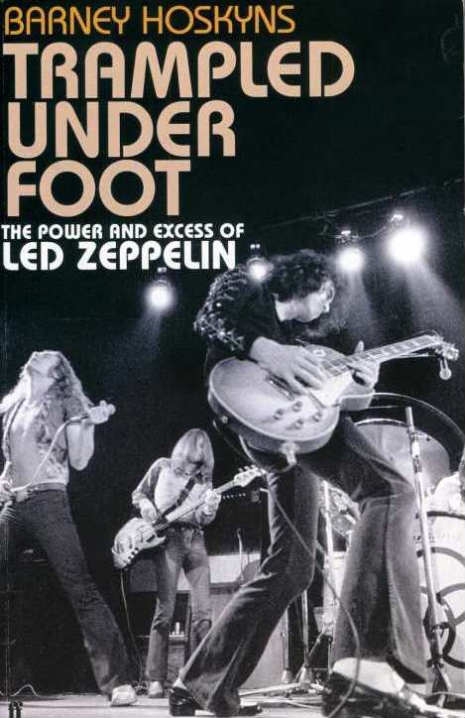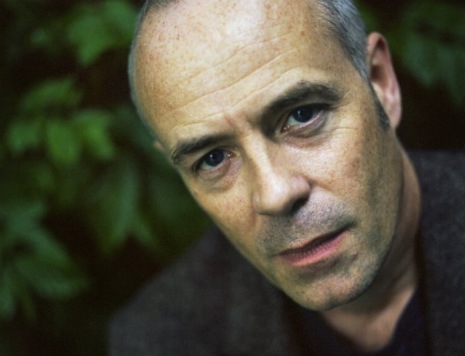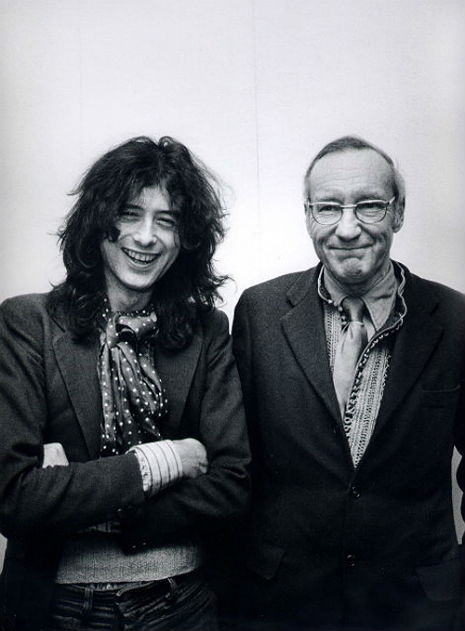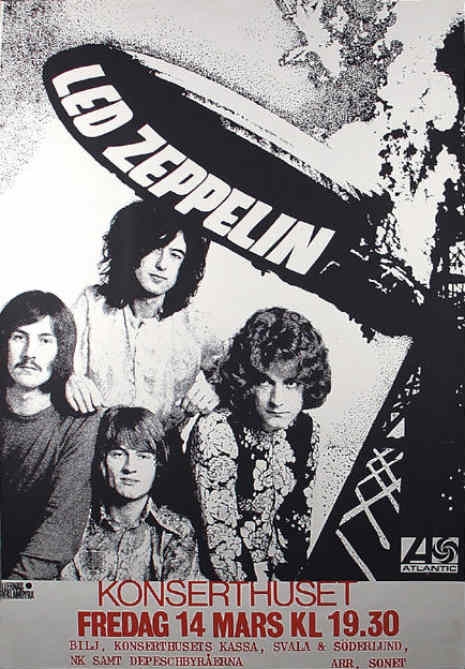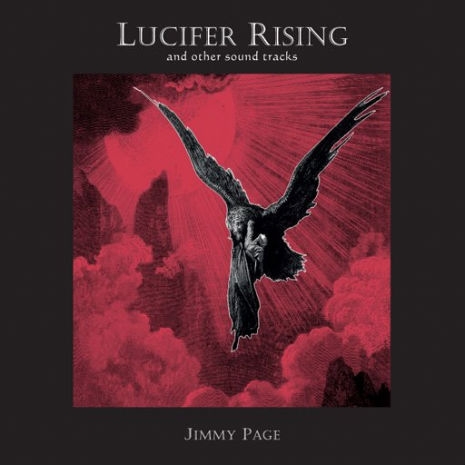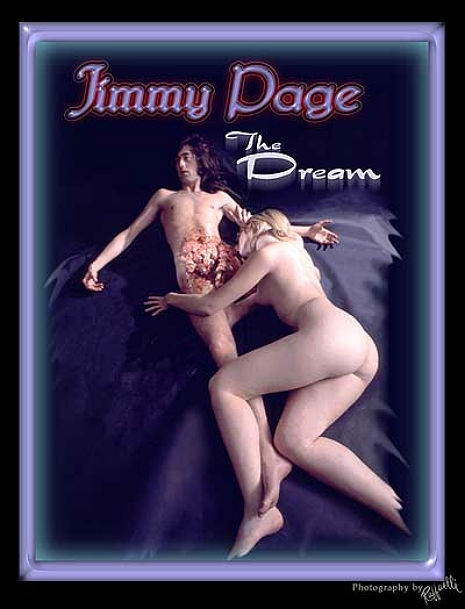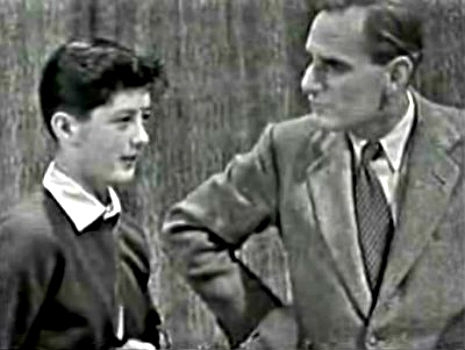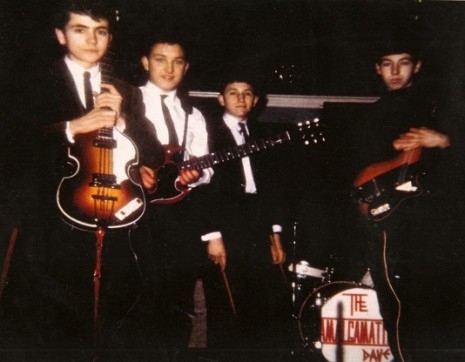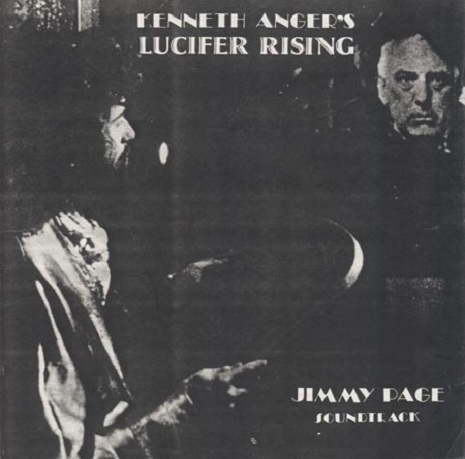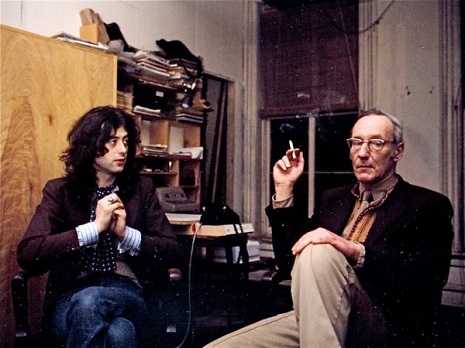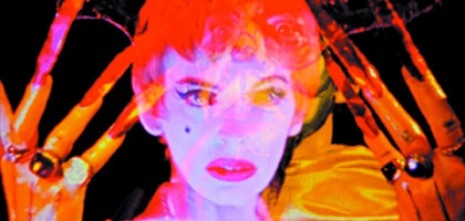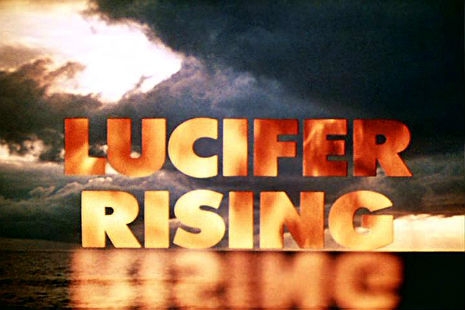
I think it’s safe to say that the music composed (and performed alone) by Jimmy Page and intended for Kenneth Anger’s Lucifer Rising, but not used, was/is among the very most sought after Led Zeppelin, or in this case Zep-related, bootleg recordings.
The story has long been a foundation of the Led Zeppelin mythos: Page and the mercurial Magus of Cinema had a falling out, then Anger did his patented “curse” routine very publicly going so far as accusing Page of being a mere “dabbler” in the occult and a rich, lazy junkie. Rock journalists began to wonder if Anger’s curse had worked when a succession of tragic events saw Robert Plant badly injured in a 1975 car accident, Plant’s five-year-old son Karac dying suddenly in 1977 and the death of John Bonham in 1980 that instantly ended Led Zeppelin’s reign as the world’s biggest rock group.
There are always two sides to every story and Page maintains that he had given the project financial support, put Ken up in one of his homes (Aleister Crowley’s Boleskine House in Scotland, no less) and lent him film editing equipment. Moreover, he’d given Anger 23 minutes of amazing music. Anger needed an additional five minutes from Page to complete Lucifer Rising, but it was slow arriving and after a shouting match with Page’s wife, he threw a major hissy, “firing” Page and viciously denouncing him—for years—in the media:
“He’s a multi-millionaire miser. He and Charlotte, that horrible vampire girl – the druggie that got him on heroin – they’re both junkies. They had so many servants, yet they would never offer me a cup of tea or a sandwich. Which is such a mistake on their part because I put the curse of king Midas on them. If you’re greedy and just amass gold you’ll get an illness. So I did turn her and Jimmy Page into statues of gold because they’ve both lost their minds. He can’t write songs anymore.”
It’s not like Jimmy Page wasn’t busy back then (the time period in question roughly corresponds to the time Led Zeppelin IV was being recorded), plus Uncle Ken can go from sweet and utterly charming to homicidal in like two seconds flat. (I’ve met Jimmy Page, as well. He was super-friendly, easygoing. An old school gentleman, informing me as he shook my hand that he had been gifted with not one, but two copies of my Book of Lies occult anthology. I know which side of this tale I come down on: Jimmy’s! Look, I admire and revere the films of Kenneth Anger. I think he’s a truly great artist, touched by genius, even, but he’s fucking nuts...)
Eventually Page’s music escaped in 1981—probably sourced from the magnetic track from an early 23-minute-long “to be continued” print of Lucifer Rising that Anger showed potential investors (I’ve seen this, it’s pretty incredible)—when it hit the bootleg market as “Solo Performances by Jimmy Page and Robert Plant,” a limited edition LP with a green wax seal (I have one of these, it sounds like frying dogshit). Another blue vinyl version was released in a “Kabbalistically numbered limited edition.” Better quality digital versions started making the rounds on torrent trackers around 2005 and last year Jimmy Page released the music he’d composed for Anger’s film via his website on very limited edition red vinyl that sold out instantly.
The music itself is wonderfully perverse: a languid but steadily building Middle Eastern-sounding drone, festooned with evil chanting, tabla, screaming mellotron, a sonically shifting low frequency foreboding ambiance and shimmering 12-string guitar work. It’s a mad, diabolical symphony of beautiful evil; a fascinating piece of unconventional aggressively avant garde music from one of the rock era’s most mysterious living legends.
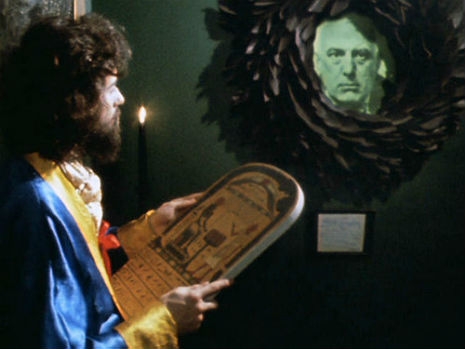
Although Page’s music was not used, the guitarist does make a cameo appearance in Lucifer Rising bearded and staring at a wreathed portrait of Aleister Crowley while holding an Egyptian stele.
Page does not often talk to journalists about his interest in the occult, but in a 2008 Guitar World interview, he did reveal a few fascinating tidbits about his creative process:
Guitar World: There was always a certain amount of speculation about your occult studies. It may have been subtle, but you weren’t really hiding it.
Page: I was living it. That’s all there is to it. It was my life – that fusion of magick and music.
Guitar World: Your use of symbols was very advanced. The sigil on Led Zeppelin IV and the embroidery on your stage clothes from that time period are good examples on how you left your mark on popular culture. It’s something that major corporations are aggressively pursuing these days: using symbols as a form of branding.
Page: You mean talismanic magick? Yes, I knew what I was doing. There’s no point in saying much about it, because the more you discuss it, the more eccentric you appear to be. But the fact is – as far as I was concerned – it was working, so I used it. But it’s really no different than people who wear ribbons around their wrists: it’s a talismanic approach to something.
Well let me amend that: it’s not exactly the same thing, but it is in the same realm. I’ll leave this subject by saying the four musical elements of Led Zeppelin making a fifth is magick into itself. That’s the alchemical process.
In Rolling Stone’s December 2012 cover story “Jimmy Page Looks Back,” Page said “...there was a request, suggesting that Lucifer Rising should come out again with my music on. I ignored it.”
Below, the unused Jimmy Page score for Lucifer Rising:






